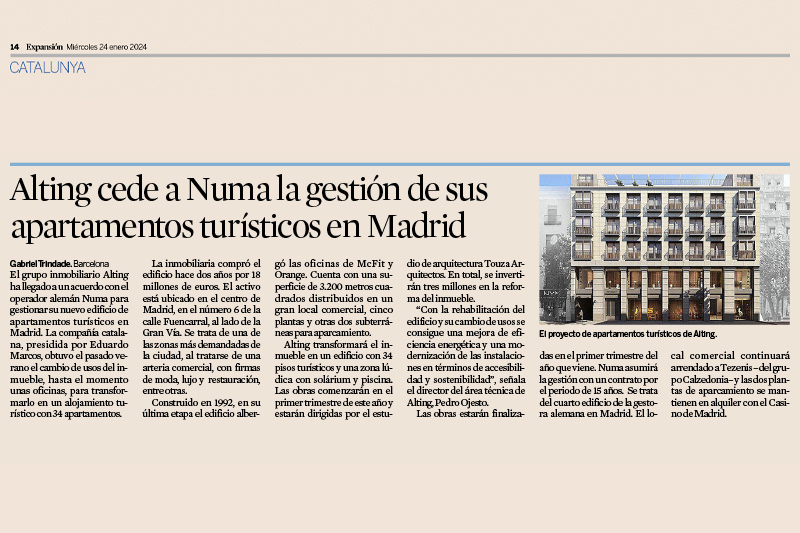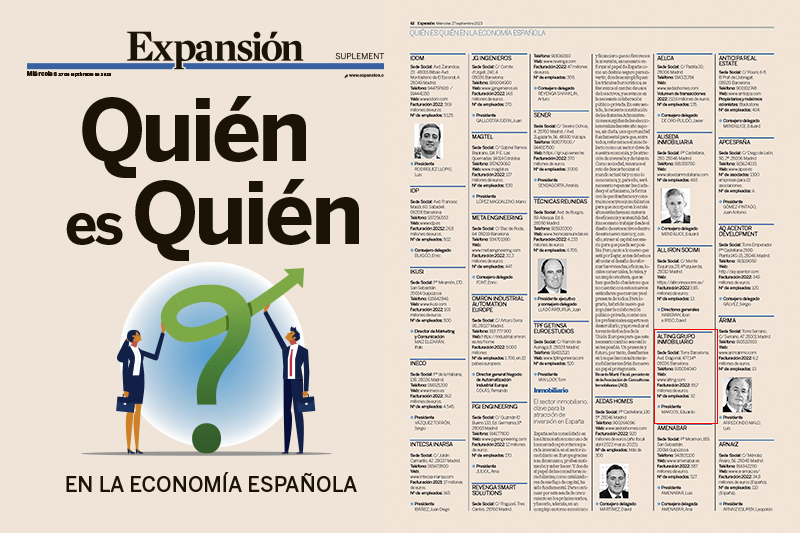This Tuesday, March 31, the government approved a new assistance package for vulnerable individuals aimed at alleviating the economic, social and health crisis unleashed by COVID-19.
The many measures in Royal Decree-Law 11/2020, dated March 31, 2020, include several targeted at housing.
RENTAL HOMES
With this new measure, tenants who have been left vulnerable by the coronavirus crisis and can document it may request more flexible measures in rent payments of their primary residence from their landlords for the month after the Decree is approved.
If the landlord owns 10 properties or fewer, the tenant and landlord can reach their own agreement on rent. If no agreement is reached, the tenant may request interest-free loans or assistance from the State.
Landlords who own more than 10 properties may choose between two options:
- Allow a moratorium on the base rental payments as long as the state of alarm lasts, which may be extended month by month up to a maximum of 4 months. This amount must be paid back within at most 3 years as long as the contract does not end before them.
- Or a 50% reduction in rent as long as the state of alarm lasts, with a maximum of 4 months.
Tenants who own their own property and/or have reached a previous agreement with the landlord may not benefit from these measures.
Only if the landlord (with fewer than 10 properties) denies the tenant a moratorium that the tenant has requested may the tenant request the assistance provided for in Article 10 of the Royal Decree-Law from the government (loans from the Official Credit Institute payable in 6 + 4 years).
Which tenants may request moratoriums or apply for loans or assistance from the State?
In order to benefit from any of these measures, the tenant must prove to the Landlord that they are in a situation of vulnerability.
- Unemployed persons.
- Workers who have been temporarily laid off as part of a temporary redundancy plan (ERTE).
- Workers who have had to reduce their workday to provide care.
- Business owners who have experienced “a substantial loss in income" which means that the household in which they live cannot afford the rent payment.
It is worth noting that the vulnerability must have been caused by the COVID-19 outbreak, so only those persons whose income drop is related to the pandemic are included. The moratorium cannot be automatically requested when the person is affected by a temporary redundancy plan, unemployment, etc., but instead only when their net income actually drops compared to the month immediately prior to the request.
Likewise, the new Decree states that tenants whose rental contract ends between 1 April and 2 months after the state of alarm is lifted may have access to an automatic 6-month extension of all rental contracts.
Finally, evictions are also suspended for 6 months as long as the tenant can prove to the Court that they are economically vulnerable.
HOMES FOR SALE
The measures approved in the Royal Decree from March 17 of this year are still in effect; they include a moratorium in mortgage payments for primary residences for individuals in a situation of economic vulnerability as a consequence of the healthcare emergency caused by COVID-19.
The new law allows mortgage holders to stop making these payments and to repay it in future installments in order to avoid losing their homes.
Likewise, this measure also benefits banks since it helps them curb defaults at an extraordinary time like now.
MORTGAGES ON COMMERCIAL SPACES AND OFFICES
This new Decree extends the mortgage moratorium announced two weeks ago for freelancers and businesspeople who are having difficulties making the payments for their offices or commercial spaces.
This is similar to the way mortgages associated with primary residences may delay capital and interest payments and repay them in installments in the future.
All the information on Royal Decree-Law 11/2020, dated March 31, 2020, enacting urgent additional social and economic measures to deal with COVID-19, are available for consultation in the Official State Gazette (BOE) published on April 1.





